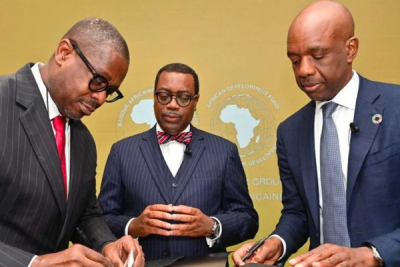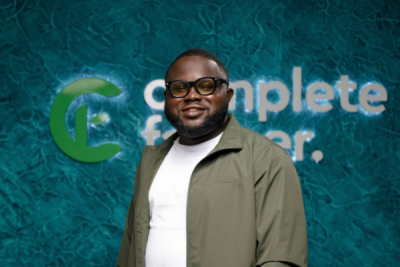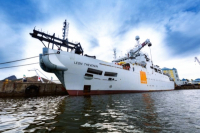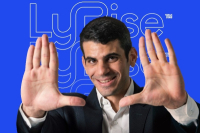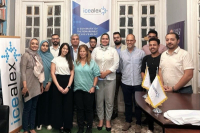ZongoVation Hub is an NGO that leverages technologies to promote socioeconomic development in often marginalized and disadvantaged Zongo communities. Doing so helps create a dynamic and inclusive entrepreneurial ecosystem in Ghana.
ZongoVation Hub is a community technology innovation space dedicated to the development and growth of young entrepreneurs and startups in Ghana's Zongo communities. Founded in 2018, it helps young individuals transform their ideas into businesses by providing them with all the tools and networks they need.
Its founder and CEO, Mahmoud Jajah, is a serial entrepreneur and ecosystem builder whose vision is to transform Zongo communities into technology hubs across Africa.
ZongoVation Hub offers training programs in various technology-related fields, such as web development, graphic design, mobile application development, digital media, business development, and more. It also organizes charitable initiatives in the fields of health, education, leadership, and entrepreneurship.
Its main program is the Zongo Startup Program, which aims to identify, train, support, and finance early-stage entrepreneurs and startups from Zongo communities in Ghana. The program includes a three-month incubation period to validate prototypes, followed by a four-month acceleration phase to perfect products and business models before presenting companies to investors.
Since its creation, it has launched seven programs and trained over 100 women and men. It has supported the creation of more than four companies. It is currently leading an initiative called Zongo Tech, which aims to train and develop 100,000 entrepreneurs and technology experts from Zongo communities by 2030. To achieve that goal, it plans to set up centers in all 16 regions of Ghana and strengthen its network of local and international partners. For the moment, it can count on Ghana Tech Lab, AfriLabs, ISpace, Google, the British Council, Social Enterprise Ghana, and Digital Zongo, among others.
Melchior Koba
Sattelite internet provider Starlink has expressed its interest in conquering the African market by 2024. To date, the company has launched operations in five countries and is looking to do the same in Chad, with plans to extend its reach to 23 African markets.
The Chadian Electronic Communications and Posts Regulatory Authority (ARCEP) has issued a warning to individuals illegally marketing and operating Starlink terminals in the country. In a press release published on social networks on Friday, September 22, the telecoms regulator warns offenders of the penalties provided for by law in the event of continuation of the aforementioned activities.
Providing unauthorized electronic communication services or maintaining the services despite legal orders to suspend it is punishable by one to five years imprisonment and fines ranging from XAF100 million ($162,500) to XAF200 million or one of the two penalties, the release informs quoting Article 113 of Law No. 014/PR/2014 on electronic communications.
ARCEP's release comes as the Starlink network is increasingly used in Chad. On social networks, users are approving the new services, which they say are bridging the digital divide in the country by providing Internet access to underserved communities at an affordable cost.
For the telecoms regulator, the problem lies in the license that Starlink would need to obtain before launching operations in the country. Two days earlier, ARCEP held a consultation meeting on Starlink's application to become a Satellite Internet Service Provider (ISP) in Chad. A response is expected in the next few days.
In Chad, the legal use of Starlink should stimulate the digital sector and offer a high-speed Internet connection to a population that constantly complains about the poor quality and high costs of the Internet in the country.
Samira Njoya
True to its mission, which is to assist African countries “in their efforts to achieve economic development and social progress,” the AfDB is signing strategic partnerships to enable every member country to capitalize on the opportunities offered by the ongoing tech revolution.
On Thursday, September 21, the African Development Bank (AfDB) and American technology giant Google announced the signing of a letter of intent during the Global Africa Business Initiative at the UN General Assembly in New York. The aim is to harness emerging technologies, expand and improve technology infrastructures, and develop talent and skills to accelerate digital transformation on the continent.
"Our journey from a 2% telephony penetration in 1998 to today's era of 4G, 5G, and AI signifies immense progress. With 70% of sub-Saharan Africans under 30, our focus is on catalyzing businesses to create jobs and offer innovative solutions," says AfDB President Akinwumi Adesina (photo, center).
African countries are accelerating digital transformation with various programs and projects. They are multiplying partnerships to this end, and all sectors of activity are being positively impacted. The establishment of ecosystems and regulations to encourage the proliferation and emergence of startups is also at the heart of many governments' actions, fostering collaboration with global technology giants such as Google, Huawei, and Microsoft.
In collaboration with the AfDB, which has already injected more than $1.9 billion into various digital-related projects on the continent, the Mountain View firm will offer, among other things, “technical assistance to bolster entrepreneurs and small and medium-sized enterprises in digitizing their businesses, securing financing, mastering digital marketing, and advancing private sector development.”
Adoni Conrad Quenum
After inaugurating digital learning centers in Mauritania last June, Digital School is shifting up a gear on the dark continent.
Dr. Waleed Al Ali, Secretary General of Digital School, and Ute Klamert, Deputy Executive Director of the World Food Programme (WFP), signed a memorandum of understanding at the United Nations General Assembly, the Emirates News Agency (WAM) reported on Friday, September 22. The MoU aims to broaden the scope of the Digital School initiative's activities, strengthen partnerships, and reach rural communities and students across sub-Saharan Africa.
"The future of education relies significantly on the utilization of digital solutions, which are a pivotal factor in empowering students worldwide to access quality education. The launch of the new partnership reflects the Digital School's humanitarian message and translates its endeavor to expand the circle of interest and reach more students across the African continent," said Omar Sultan Al Olama, UAE Minister of State for Artificial Intelligence, Digital Economy and Telework Applications and Chairman of Digital School's Board of Directors.
Since the Covid-19 pandemic, distance learning has emerged as an attractive alternative to traditional training. With an Internet connection, it is possible to receive training in a variety of fields by attending online courses or consuming content (video and/or audio) uploaded to web platforms. Education technology startups are proliferating on the continent, and authorities are joining forces with various technical partners to improve Internet quality. However, Internet penetration in sub-Saharan Africa remains low, at around 30% presently.
Present in eight countries worldwide, including two in Africa (Mauritania, and Egypt), Digital School was launched in 2020 and has already trained over 1,500 trainers and welcomed over 60,000 students. Last June, it strengthened its presence in Mauritania by inaugurating 66 digital learning centers, to spread digital education skills and solutions throughout the Arab region.
Adoni Conrad Quenum
Ghanaian start-up Complete Farmer, which connects farmers with global food buyers, recently announced it raised $10.4 million in funding, including $7 million in equity.
According to its executives, the funds will help Complete Farmer notably scale operations, improve technologies, and conduct research on agricultural protocols.
In Africa, access to pharmacies and hospitals can prove challenging in some regions. To address the problem, e-health solutions have been introduced.
Zendawa is an e-health platform developed by a Kenyan startup. It enables access to pharmaceutical products and facilitates online appointments with doctors. The Nakuru-based start-up was founded in 2022 by Wilfred Chege. It aims to establish sustainable solutions in the health technology sector.
Currently, the solution has no mobile app. So, users have to visit its web platform to browse the various services it offers, without even having to create an account. Users need no account to even book an appointment. They just have to click on the "Make an appointment" button and fill in the required information, including the name, e-mail address, phone number, appointment date, and details about the medical condition.
Zendawa offers pharmacists a cash and inventory management service and access to working capital. "We leverage on Artificial Intelligence, based on data from our pharmacies' digital suite, to come up with credit scores which unlock access to capital for our pharmacies from our lending partners," it says on its web platform.
The platform also has a feature that allows doctors to share patients’ medical records. "We provide our medical practitioners with an integrated digital suite from which they can share patient's medical records and leverage on Artificial Intelligence to provide fully informed care decisions," Zendawa states.
Zendawa has launched a deferred payment service to facilitate supplies to pharmacies in the event of stock shortages. In 2023, it was selected as one of 29 African startups to take part in the second cohort of the Investing in Innovation (i3) program.
Adoni Conrad Quenum
The International Telecommunication Union considers broadband access to be an indicator of development. At a time when digitalization is accelerating in Africa, ensuring connectivity for the population is more than just an economic issue.
Repairs on the West African Cable System (WACS), South Africa Transit 3 (SAT3), and Africa Coast to Europe (ACE) submarine fiber optic cables, damaged in early August 2023, have been completed. The three high-speed telecoms infrastructures linking the west coast of Africa to Europe had been severed off the coast of the Democratic Republic of Congo following a rockfall in an underwater canyon. Repairs were carried out by the cable-laying vessel Léon Thévenin, which arrived in South Africa on August 21.
Openserve –the broadband Internet arm of South African telecoms group Telkom, which is also one of the members of the WACS and SAT3 cable consortium– confirmed the successful completion of the repairs on Wednesday, September 20.
“The completion of this work is good news for Internet users as this means that there is more available capacity and improved network resiliency," said Openserve.
Because of the break in the three undersea fiber optic cables, Internet service providers and consumers have been deprived of a total of 154.5 terabits per second (Tbps) of data capacity for over a month. That's 20 Tbps for the ACE system, which connects ten African countries; 120 Tbps for SAT3 and 14.5 Tbps for WACS, which together connect eleven African countries.
For some countries, such as Benin, Cameroon, and Côte d'Ivoire, which host all these cables, the inconvenience caused by the incident to telecoms infrastructures was somewhat more severe. However, the alternative solutions adopted by operators enabled Internet services to continue uninterrupted.
This is not the first time that the SAT3, WACS, or ACE cables have been damaged. In 2017 and 2020, the cables were severed, hampering business continuity in several countries. To remedy the situation once and for all, many countries are increasing their access to subsea systems, while others are opting for satellite technologies.
At a time when the United Nations considers the Internet to be a basic service capable of contributing to the achievement of the Sustainable Development Goals (SDGs), the diversification of connectivity sources is more than just an economic issue for African countries.
Samira Njoya
He strongly believes that artificial intelligence can transform the world and create new growth and development strategies. He therefore provides companies with solutions that help them integrate AI into their operating sectors.
Marc Banoub (photo) is the CEO and founder of LyRise, a company that aims to solve the shortage of artificial intelligence (AI) expertise by creating remote AI teams. He is also a technology entrepreneur, AI trainer, and an AI and data community leader.
The Egyptian-born entrepreneur graduated from the American University in Cairo in 2014 with a Bachelor's in Mechanical Engineering. He then pursued his passion for AI, the Internet of Things (IoT), and blockchain by attending the inaugural MIT Deep Technology Bootcamp in 2019, where he learned from world-class experts and mentors.
In 2019, he launched LyRise, a platform that connects companies with remote AI teams. His platform helps companies find, recruit, and manage skilled AI talent from around the world. It also offers training and mentoring to its AI teams to ensure they deliver high-quality solutions.
Apart from LyRise, Marc Banoub also founded Cairo AI, a community for young Egyptian machine learning, computer vision, and speech processing professionals. He also founded Lyra, a provider of AI-enabled business transformation solutions in Egypt.
Marc Banoub has led advanced AI training programs with companies such as Microsoft, enabling over 150 people to hone their skills and over 60 people to be co-certified. Since 2018, he has been the MENA (North Africa and Middle East) Ambassador of VETRI Foundation, a non-profit organization focusing on data sovereignty and ownership. Between 2016 and 2018, he worked for IGI Holding as a Technical Assistant to the CEO. He then worked for Transcendium, a catalyst for business transformations in the Middle East, as a transformation analyst for 4 months.
Marc Banoub has received several awards and recognitions for his achievements and contributions in the field of AI. For instance, in 2021, he was listed in the Forbes Middle East 30 Under 30. He also won a sponsored trip to visit executives from Google, Meta, Palantir, and many others in Silicon Valley in 2022.
Melchior Koba
More than being just an innovation space, Icealex is a dynamic and supportive community that brings together passionate, creative and committed people to make Alexandria a more prosperous city.
Icealex is a community-driven technology innovation space that aims to promote creativity, collaboration, and entrepreneurship in the city of Alexandria, Egypt. Founded in 2011 by Mohamed El-Sharkawy, an engineer with a passion for sustainable technologies and solutions, Icealex offers a variety of services and programs to support project ideas, startups, artisans, and students.
The innovation space stands out for its social and environmental commitment, seeking to provide local answers to local challenges. It offers technical workshops, rapid prototyping and digital fabrication services, project mentoring, a coworking space, networking activities, and social entrepreneurship training.
Icealex is also an international network of hubs and nodes based in Cairo (Egypt), Addis Ababa (Ethiopia), and Weimar (Germany). It supports entrepreneurs through three main programs. The first, Startups of Africa, connects startup owners with mentors. It also fosters collaboration between startups to build a stronger ecosystem with more solid partnerships.
The second program is the Ladies Startups League, a program aimed at helping women-led startups validate their ideas and scale their businesses.
The last program is Startups of Alex, an incubation program launched to help develop startups and boost collaboration in the Alexandria startup ecosystem. The program is funded by Egypt's Academy of Scientific Research and Technology (ASRT).
Icealex has also launched initiatives such as the Makers of Alexandria project, which aims to highlight innovative trades that are on the verge of extinction. It organizes events such as Icebreakfast, a bimonthly gathering during which its community gathers over breakfast and exchanges knowledge on a variety of subjects.
Melchior Koba
TelCables Nigeria, a subsidiary of Angola Cables, announced on Wednesday, September 20 the launch of the Clouds2Africa node. The aim is to improve connectivity in the West African sub-region and facilitate access to cloud solutions.
"Clouds2Africa is powered by Angola Cables’ submarine network, including WACS, SACS, Monet, Equiano, and Djoliba Network for West Africa, offering robust and reliable connectivity across the African continent," the company indicates.
More...
Information and communication technologies have become key drivers for efficiency and growth in several economic sectors. Realizing the importance of such technologies, Cameroon is stepping up initiatives in the digital sector. The government recently launched a major project to rapidly develop the sector.
On Friday, September 15, Cameroon’s State Minister Ferdinand Ngoh Ngoh granted an audience to a delegation of Chinese tech giant Huawei. According to local media, during the audience, the two parties discussed a range of topics, including the development of the digital sector in Cameroon.
"Given Cameroon's potential, Huawei Group officials reaffirmed their commitment to working alongside the country to develop a high-level national strategy for the digital economy, to make Cameroon an ICT hub in the French-speaking African region," reports the state-owned daily Cameroon Tribune.
The technology group's visit to Cameroon comes a month after the launch of the Project for the Acceleration of Digital Transformation in Cameroon (PATNUC). The project, financed to the tune of $100 million by the World Bank, is designed to accelerate the country's digital transformation through three main complementary components on the supply and demand sides of the digital economy, with a particular focus on digitizing the agricultural sector.
Thanks to this mutual commitment, Cameroon will be able to benefit from Huawei's technological advances and expertise to strengthen its digital sector and foster economic development. The two parties will also be working together to transfer ICT technology to Cameroon's youth, as well as promote rural electrification using solar energy and develop the concept of smart cities using video surveillance at the national level.
Samira Njoya
On Thursday, September 21, Liquid Intelligent Technologies' Zambian subsidiary announced the official launch of Azure Stack, a Microsoft cloud solution accessible from Liquid's data centers. Aimed at businesses, it will, among other things, ensure they “can access local cloud solutions cost-effectively.”
Habaka aims to create a culture of innovation and technology in Madagascar. By supporting the development of tech talents, it wants to contribute to socio-economic development in the country.
Habaka - which means “space” in Malagasy is a technology innovation hub that supports a community of entrepreneurs, developers, and innovators. Formerly known as Malagasy i-Hub, it was initiated, in 2011, by independent Malagasy web players. It offers various services and programs to help the local tech community develop and flourish.
It has a modern, comfortable, and well-equipped coworking space, where tech workers can access the Internet, use various modern equipment, and meet others who share their interests and goals.
The innovation hub organizes and hosts events, like the Startup Weekend, Barcamp, Webcup, ICT cafés, etc., dedicated to entrepreneurship and technology. These events offer participants opportunities to learn new skills, share ideas, and network with experts and peers.
The hub offers training on various subjects, such as web development, digital marketing, graphic design, and entrepreneurship. It also runs a program called Coder Dojo, which teaches programming and creative problem-solving to young people.
Its fablab features a range of equipment, including a 3D printer and powerful computers to enable users to customize any object. These tools and accessories enable companies to prototype their products before mass production.
Habaka currently has five communities with thousands of members and counting. Its members work in various strategic sectors such as software engineering, machine learning, robotics, smart cities, astronomy, and game development, among others.
Since 2018, the hub has been nurturing a project to set up Hay Valley, the Malagasy equivalent of US Silicon Valley. With the help of its partners AfriLabs, Orange, GIZ, ArchiCONCEPT, Network Information Center Madagascar (NIC-MG), and the Centre d'innovation et de documentation scientifique et technique (CIDST), the hub has supported some 80 startups and delivered 70 practical training courses.
Melchior Koba
For the first cohort, Investing in Innovation selected 31 startups. This time, it has selected 29 startups operating in healthcare technologies, particularly in healthcare supply chains.
Last Tuesday, the pan-African initiative Investing in Innovation (i3) announced the second cohort of its i3 program. The cohort comprises 29 startups from ten African countries. The startups will take part in the annual market access event in Nairobi from November 14 to 15, 2023.
"Selected startups receive introductions to leading potential customers in industry, donor agencies and governments, a $50,000 grant, and tailored investment readiness support from leading accelerators Villgro Africa, IMPACT Lab, Startupbootcamp Afritech, and CcHUB," we learn.
For the startups selected for this second cohort, 38% are headed by women, and 17% are active in French-speaking Africa, a region that is "less attractive" to foreign investors. Against a backdrop of slowing startup fundraising in Africa, these various programs show that the African technology sector is still attractive.
According to Kieran Daly, Director of Global Health Agencies and Funds at the Bill & Melinda Gates Foundation, the program, supported by the Bill & Melinda Gates Foundation and sponsored by the likes of Cencora and Microsoft, complements state and international initiatives to improve health outcomes and strengthen local health systems. “Programs like i3 help us understand, support, and engage with technology-driven solutions emerging across Africa, hand-in-hand with our partners,” he added.
Adoni Conrad Quenum




